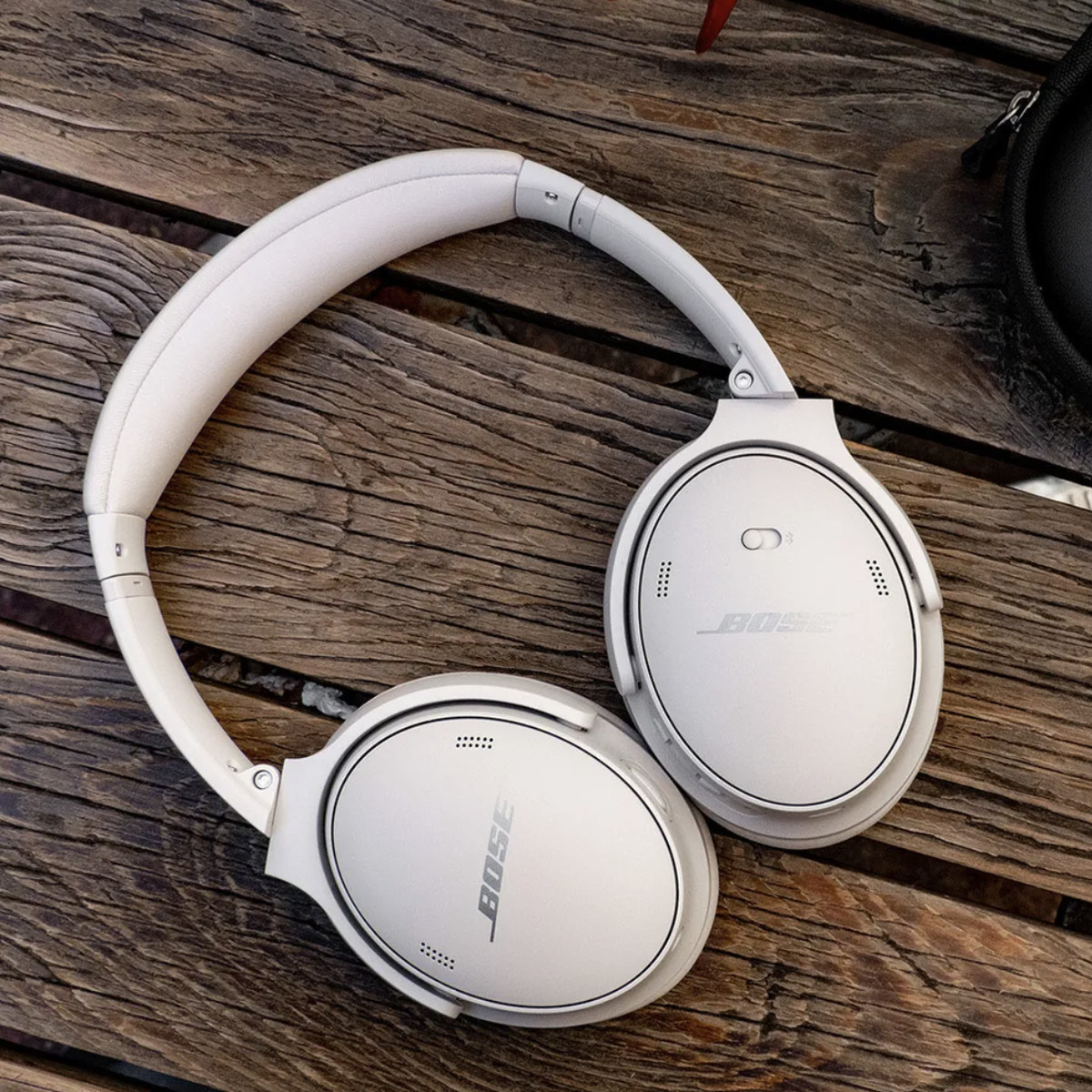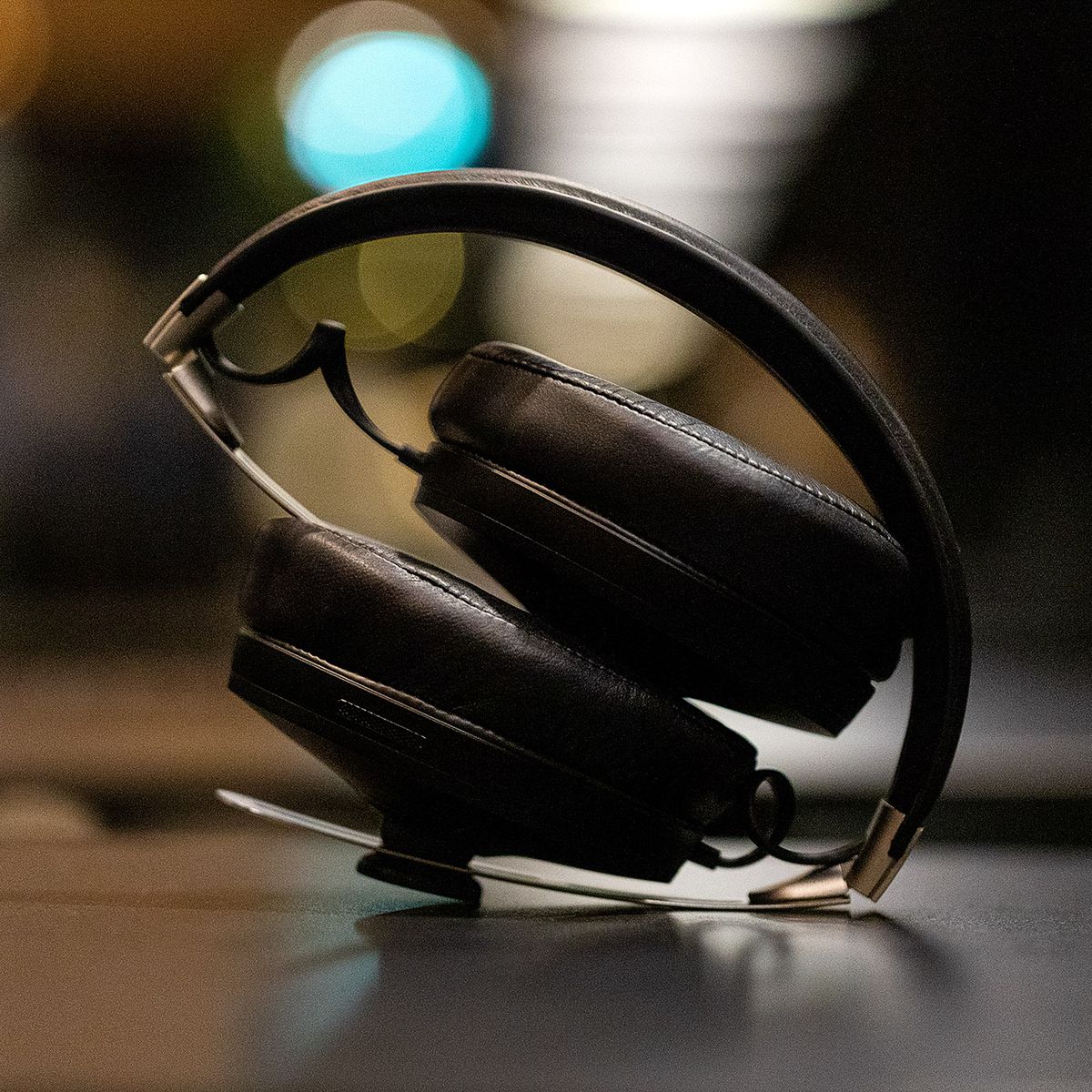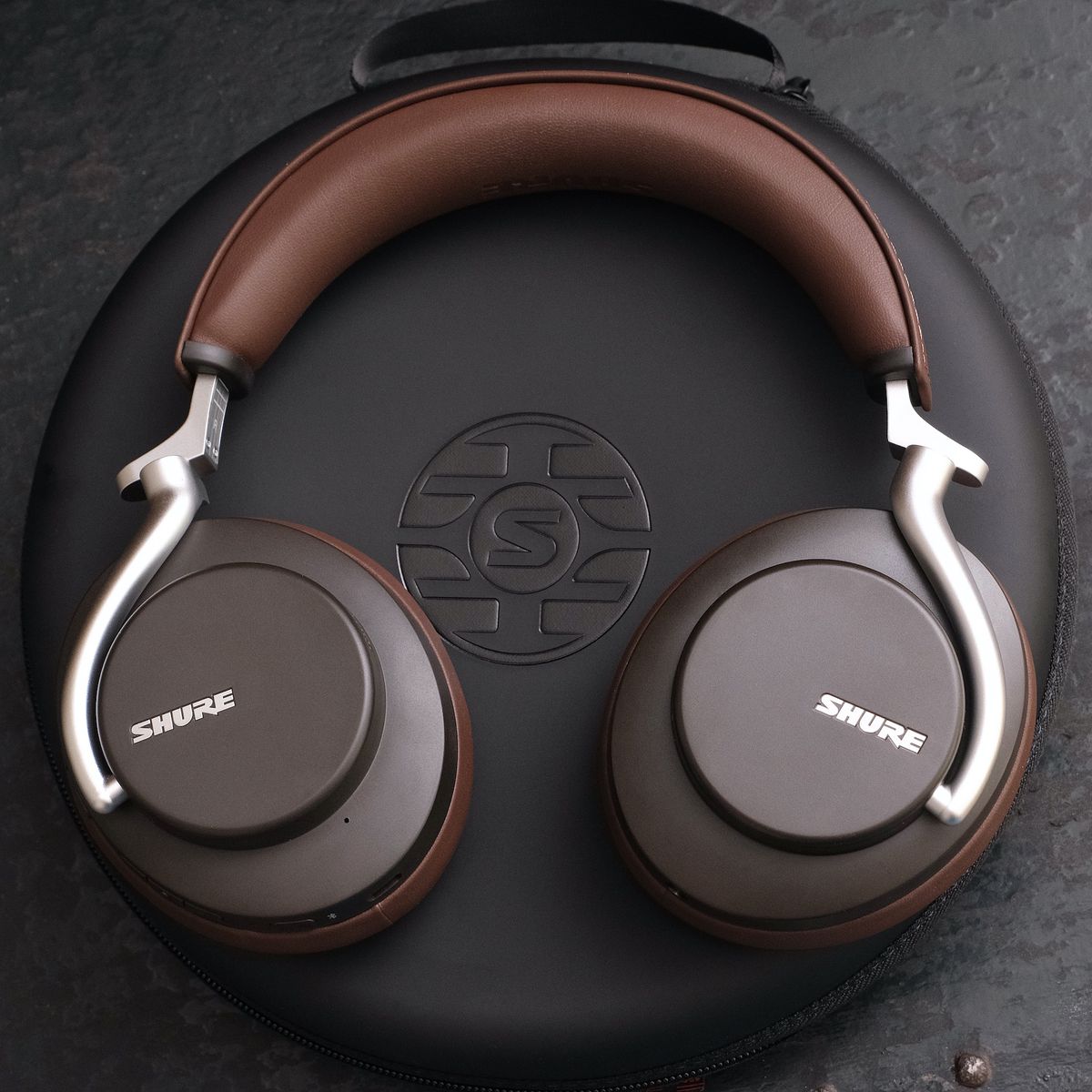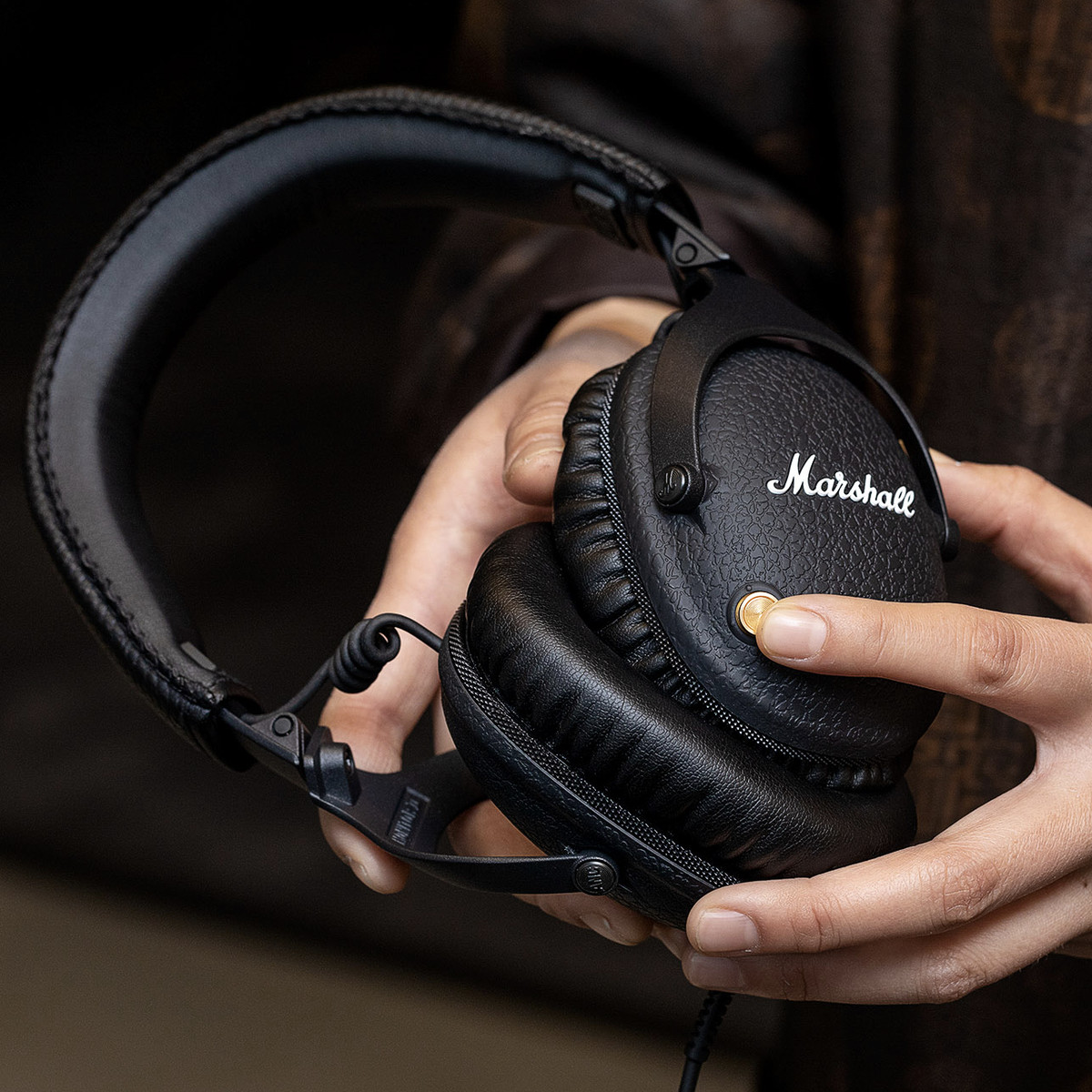The best noise-canceling headphones to buy right now
Whether you’re wearing them for the morning commute, while traveling, or if you’re simply trying to find some peace and quiet while working at home, noise-canceling headphones are a more essential piece of kit nowadays than ever before. And you’ve got a slew of great options to pick from.
No matter how you’re using them, the criteria for picking the best noise-canceling headphones haven’t changed: the most important measures are comfort, how well they can eliminate outside noise, sound quality, battery life, and whether they support multipoint pairing so you can connect to two audio sources at once. The right headphones for you will differ based on which of those things you prioritize, but our overall pick for the best noise-canceling headphones is Sony’s WH-1000XM4. They offer a good mix of sound quality, everyday durability, and great noise cancellation.
But if you’re looking for something a bit different, there are still plenty of options. If you want supreme comfort during those long-haul flights, Bose’s QuietComfort 45s are the answer. If you’re an iPhone owner and will only settle for the best, the AirPods Max live up to their price. But Sennheiser and Shure also sell some tremendous ANC headphones if sound quality is your main focus. Trying to find the best headphones for Zoom life? Microsoft and Bose both have strong contenders. And if you’re after something a little more stylish, Marshall’s headphones just might surprise you.
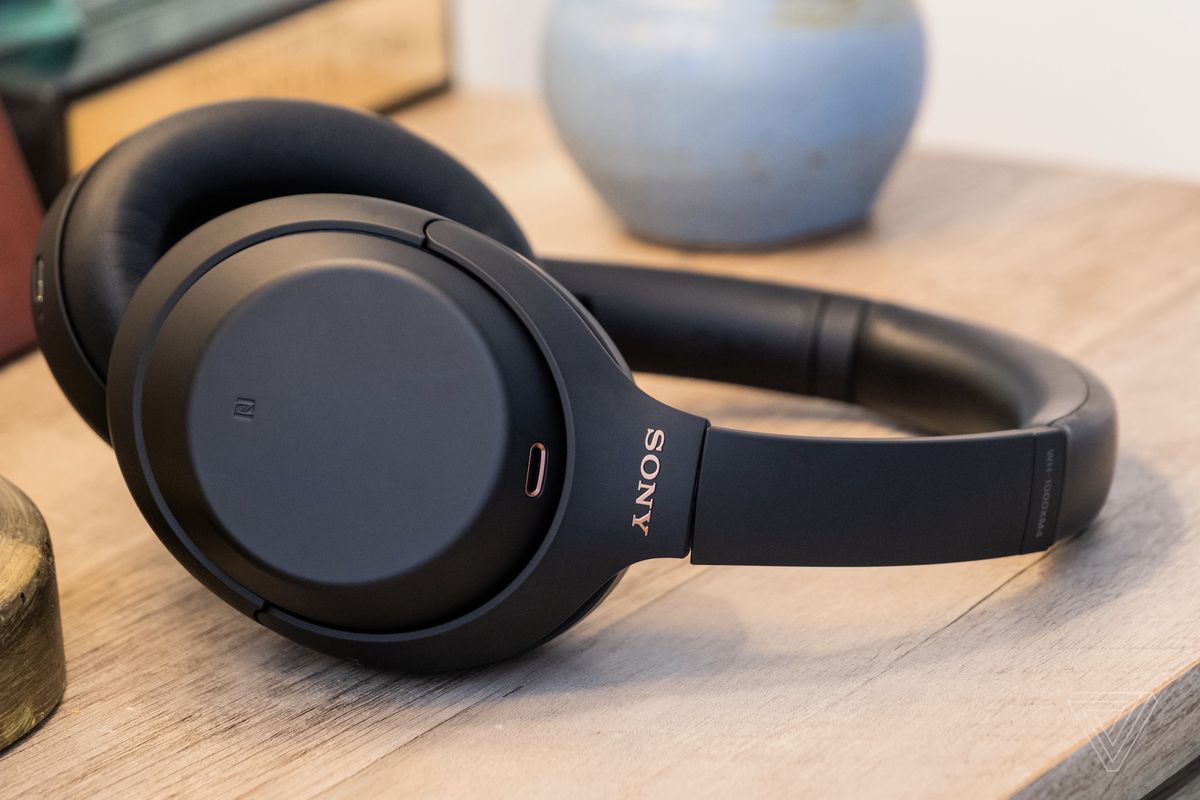
The best noise-canceling headphones for most people
Sony’s WH-1000XM4 might look identical to the previous 1000XM3s, but the company has made slight design tweaks for added comfort on those days when you find yourself wearing the M4s for hours.
Noise cancellation has been further improved from the performance of the M3s, putting Sony neck and neck with Bose in overall effectiveness of silencing your surroundings. Sound quality is basically identical to the previous headphones — it’s still punchy, full, and very enjoyable — as is the marathon 30-hour battery life. But Sony addressed two of the biggest issues with the M3s this time around: the 1000XM4s have improved voice microphone performance, and they can now connect to two devices simultaneously, so you can stay clued into what’s happening on your phone when you’re working away on your laptop or tablet.
Sony also has a really unique trick for convenience: the optional “speak to chat” function will automatically pause your music and pipe in ambient audio when the headphones detect you’ve started talking, which is handy when you’re grabbing a coffee. And unlike their predecessors, the 1000XM4s can tell when they’ve been removed from your ears for auto-pause. They still cost the same hefty $350, but you’re getting more for your money with the 1000XM4s than before.

The most comfortable noise-canceling headphones
Bose’s QC45 headphones are a return to form in the best way. They have a design that’s very similar to the QC35II, meaning they’re remarkably light and comfortable on your head even when worn for an entire day. The oval ear cups never fatigue your ears, and no one can match Bose when it comes to comfort. Best of all, unlike the Noise Canceling Headphones 700, these can be folded to make them easier to travel with.
Bose made modest improvements to the active noise cancellation and stretched battery life to 24 hours from the previous 20. The QC45s also have a USB-C port instead of the Micro USB connector of their predecessors. And they add a transparency mode for when you need to have a quick chat with someone or want more awareness of your surroundings.
Sound quality on the QC45s is a little more even-handed than the bassy Sony 1000XM4s. And unfortunately, Bose doesn’t offer EQ customization for these headphones at the moment. Another frustration is that there’s no way to turn off noise cancellation without activating the transparency mode. It’s one or the other with no basic “off” mode. I’m still hoping Bose will address both of these shortcomings with future software updates, but you shouldn’t count on that.
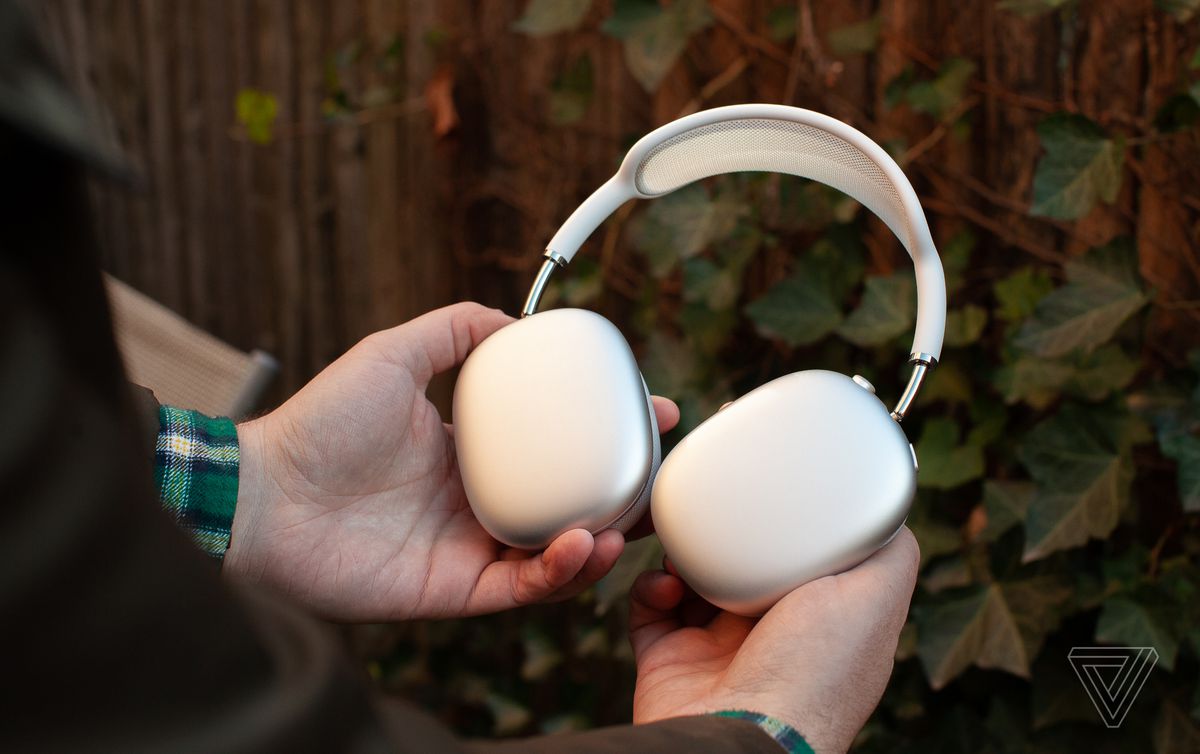
The best noise-canceling headphones for sound quality
There was definitely some sticker shock when Apple introduced a $549 set of noise-canceling headphones. The AirPods Max cost significantly more money than any of our other recommendations. But Apple’s build quality is on another level: these trade the plastic you’ll find in many noise-canceling headphones for steel and aluminum, and the ear cups are a breathable mesh fabric. They’re hefty headphones, there’s no denying that. But aside from Apple refusing to include a headphone cable in the box, there’s nothing about the AirPods Max that feels cheap. And I appreciate the simplicity of using the digital crown for controls instead of relying on hit-or-miss gestures like taps and swipes.
The most important part is that the AirPods Max deliver the best audio quality you can get from high-end Bluetooth headphones. They have an immersive, wide soundstage, fantastic dynamics, and you’ll find yourself hopping around your music library just to hear what they bring out in your favorite songs. Apple’s noise cancellation is right up there with Sony and Bose, and no one does transparency mode better; at times, it can make you think you’re not wearing headphones at all. Extra features like Spatial Audio (surround sound for movies and TV shows) and automatic switching between Apple gadgets help make it a bit easier to swallow that daunting price.
But the AirPods Max do have faults. The carrying case is abysmal, battery life is only average for the category, and just like regular AirPods, they’re designed with Apple’s ecosystem in mind. It gets much harder to justify dropping $550 on them if you live outside the iPhone and Mac universe.
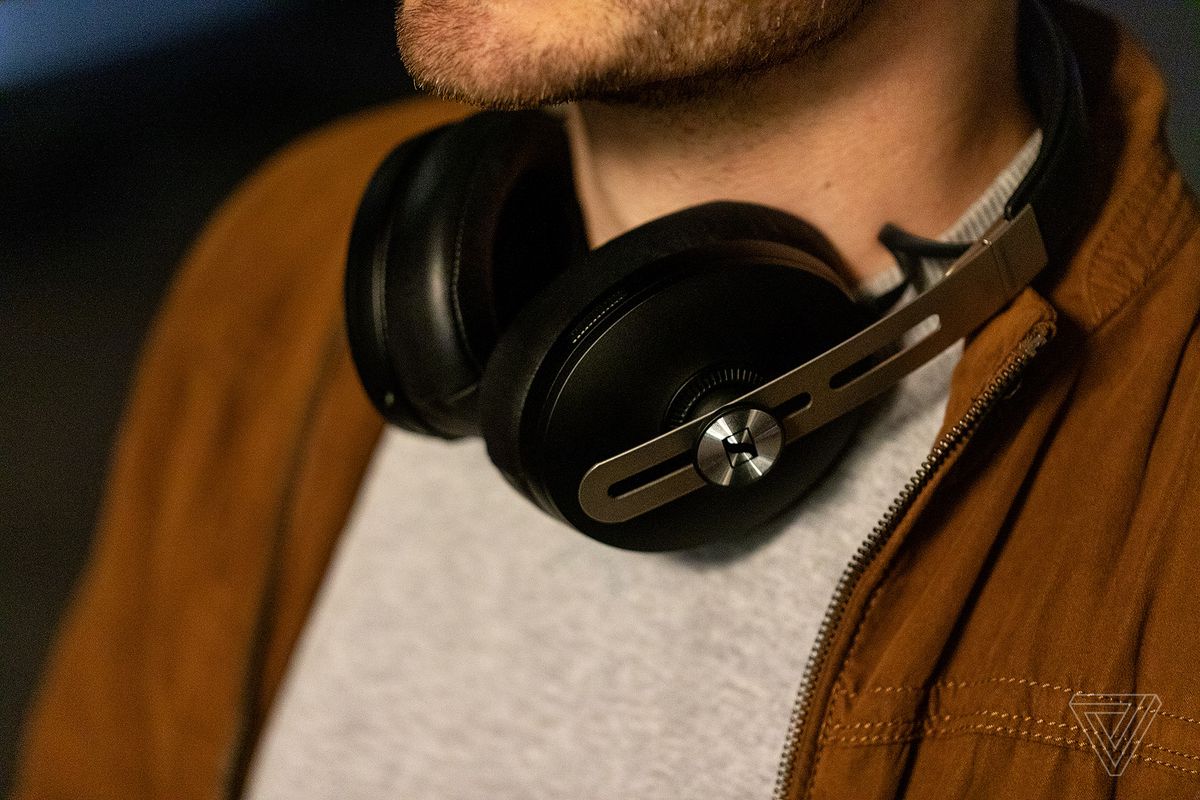
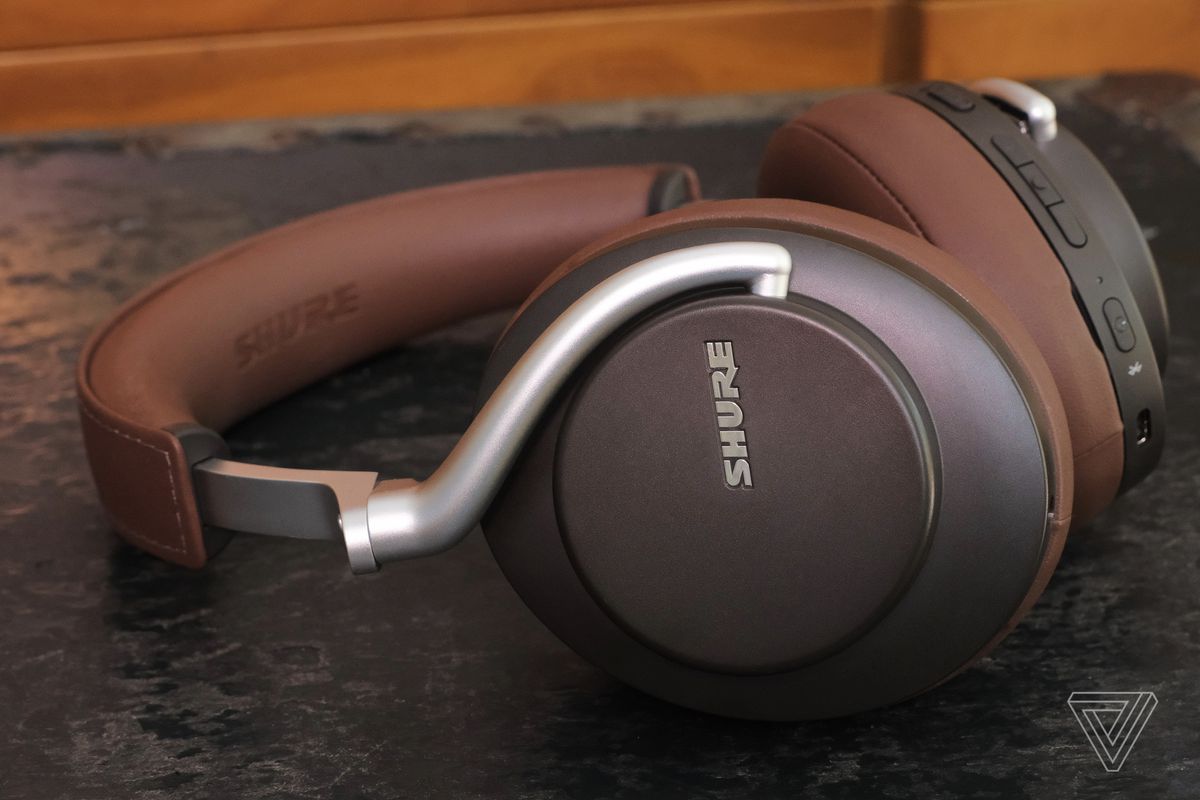
The best sounding noise-canceling headphones if you’re not an Apple user
If you prioritize enjoying your music over drowning out the world, then both Sennheiser and Shure have fantastic options with superb sound quality and adequate noise cancellation. Sennheiser’s Momentum Wireless have detailed, bass-rich, and vibrant sound combined with sublime comfort. The same can be said for the newer Shure Aonic 50 headphones, which support advanced codecs like apt-X HD and LDAC.
If you’re a stickler for audio quality, both headphones can be used wired with either a 3.5mm headphone jack or over USB-C. They each outdo Bose and other more mainstream picks in terms of build quality and materials. That premium feel does demand a bit more, with both of these selling for the same $400 price tag. Their noise-canceling isn’t on par with the best, but you still get convenient software features like ambient passthrough and customizable EQ on top of the brilliant sound.
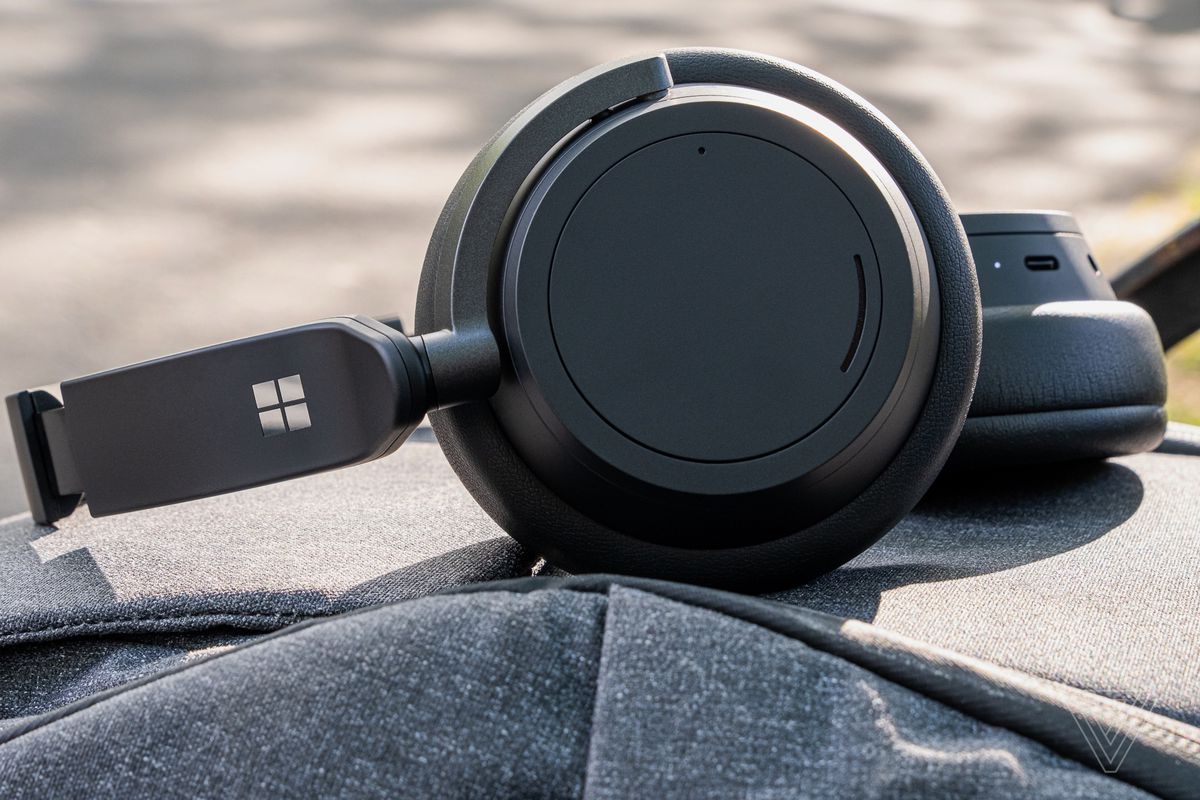
The best noise-canceling headphones for multitasking
With the Surface Headphones 2, Microsoft retained the brilliant turning-dial control scheme of the first-generation pair and made noticeable improvements to sound quality and battery life. After you’ve gotten used to adjusting volume or noise cancellation levels simply by twisting the dial around each ear cup, you’ll never want to go back to hunting for button nubs again.
The Surface Headphones 2 are also an excellent pick for productivity, as their multipoint pairing works seamlessly when a call comes in on your phone while you’re at work on your PC. Something about the way Microsoft handles simultaneous Bluetooth connections seems more reliable and consistent than what everyone else is doing. It’s rare that I encounter any bugs when connected to two devices at once. It’s hard to oversell this benefit during work-at-home life, and you get the convenience for much less cash than the Sony or Bose headphones.
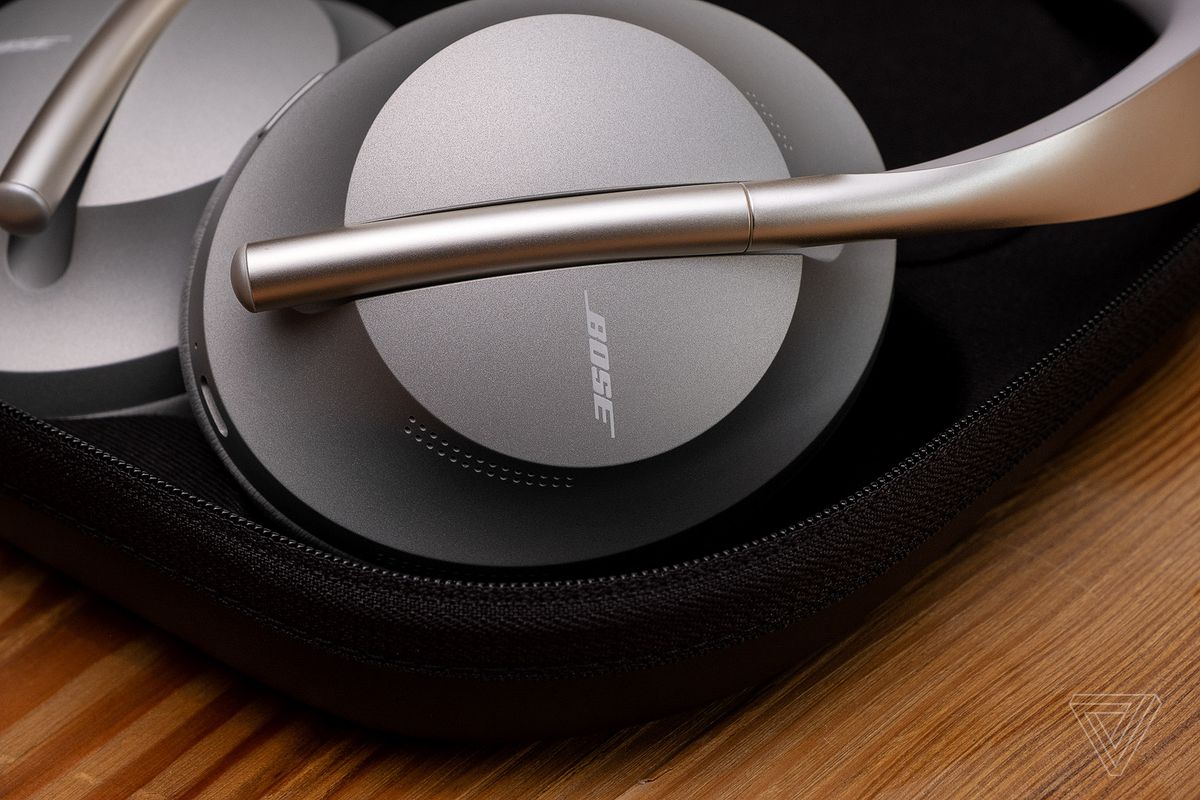
The best noise-canceling headphones for voice calls
Bose is the brand synonymous with noise-canceling headphones, and the Noise Canceling Headphones 700 are another example of why that reputation is well-earned. They have satisfactory sound, excellent voice call quality, and great noise cancellation effectiveness. It’s really a flip of the coin between these and Sony’s 1000XM3 headphones in the eyes of many. Sony ekes out superior battery life and more lively, impactful sound, but Bose’s support for multipoint pairing with two devices at once is a big plus. The Noise Canceling Headphones 700 are comfortable to wear for long stretches of time, even if they aren’t as feather-light as the company’s less expensive QC35 II headphones.
When it comes time to join a Zoom meeting or call someone, you’ll be heard loud and clear by whoever’s on the other end, which can’t be said for all wireless headphones on this list. Bose’s microphone setup on the Noise Canceling Headphones 700 is second to none, though Jabra also fares well here. Battery life is where Bose trails its competitors, with the Noise Canceling Headphones 700 rated at up to 20 hours — short of the 30 hours you can reach with Sony or other picks below.
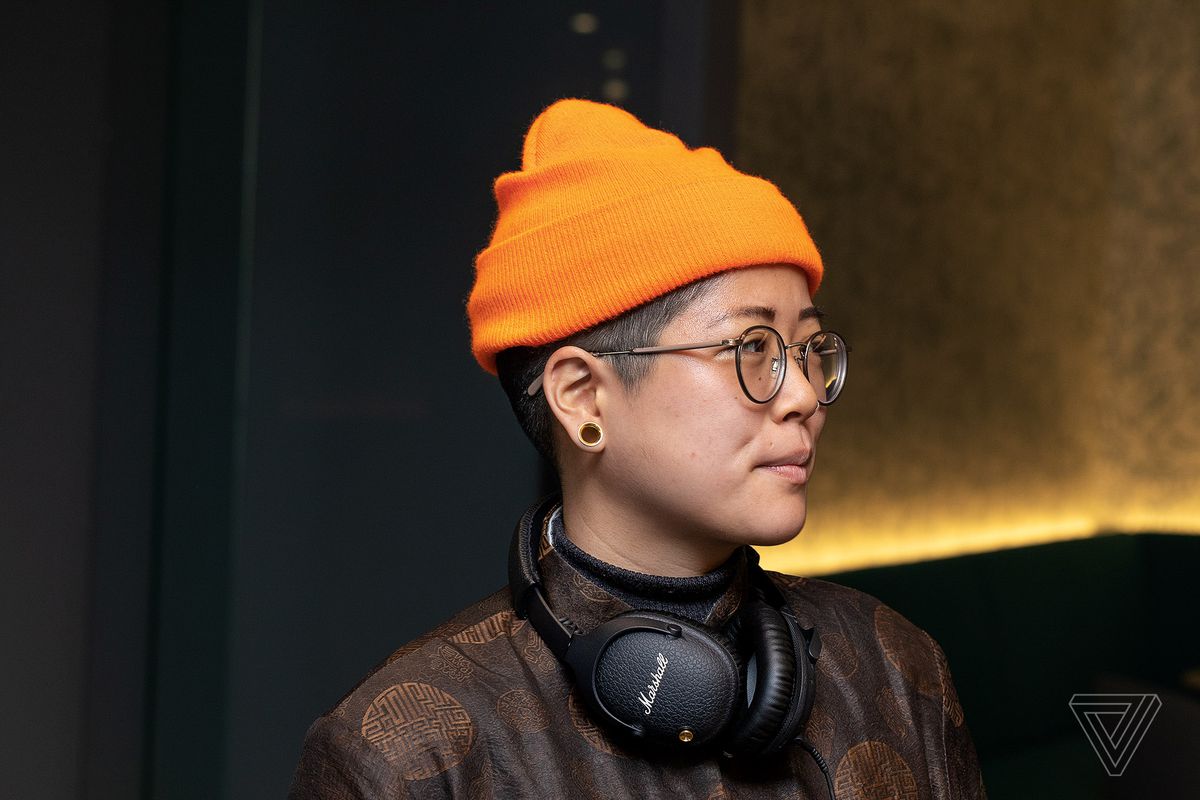
7. Marshall Monitor II ANC
The best noise-canceling headphones for style
Marshall’s wireless headphones have proven surprisingly popular, and the company’s most expensive pair is also its best yet. The Monitor II ANC headphones are priced at $320, which puts them on the same playing field as Bose, Sony, and other tech companies that have been making premium noise-canceling cans for many years.
Marshall doesn’t quite match them in sound quality or NC effectiveness; the Monitor IIs have warm, textured sound and perform decently at cutting down on ambient noise. But they definitely stand out from the pack in looks, with a design that speaks to the company’s heritage. The headphones fold up for easy carrying, and Marshall’s signature gold joystick makes the Monitor IIs simple to control.
They can also last up to 30 hours with NC enabled or up to a staggering 45 hours if you’re already someplace quiet and can do without the feature. That impressive longevity beats our primary picks. A lack of AAC codec support at this price stings, but I’ve enjoyed the Monitor IIs every time I’ve put them on. They’re more than just an amp brand stamped onto an average pair of headphones.
https://www.theverge.com/21345733/best-noise-canceling-headphones

